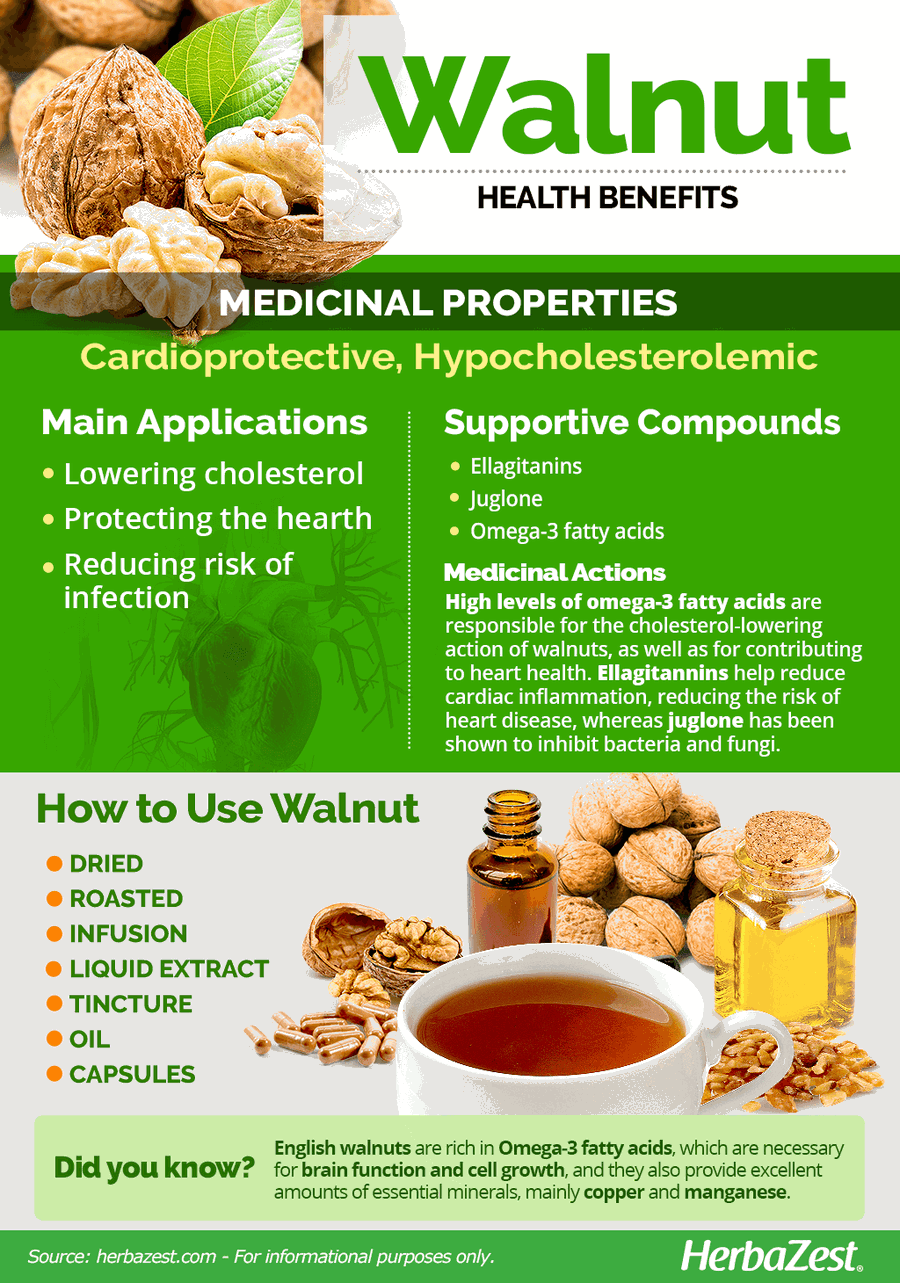5. Walnuts may help to reduce levels of bad LDL cholesterol
Research has found that walnut consumption helps to reduce levels of “bad” low-density lipoprotein (LDL) cholesterol, as well as reduce the number of small LDL particles and total LDL particles.1✅ JOURNAL REFERENCE
DOI: 10.1161/CIRCULATIONAHA.121.054051
Other research has found that nuts, and walnuts especially, are generally linked to reduced rates of stroke and heart disease. This is because they reduce levels of LDL cholesterol, and this study reveals one more reason: LDL particle quality is improved. LDL particles can be found in various sizes, and studies have demonstrated that small, dense LDL particles are more often linked to atherosclerosis, the fatty deposits, or plaque buildup in the arteries.
The 708 healthy, 63 – 79 year-old study participants were randomly separated into 2 groups: an active intervention group and a control group. Intervention group assigned individuals added approximately a half cup of walnuts to their typical diet every day, while control group individuals abstained from consuming any walnuts. After 2 years, cholesterol levels of all participants were assessed, and lipoprotein size and concentration were examined by using nuclear magnetic resonance spectroscopy.
The study discovered that the walnut group individuals had reduced levels of LDL cholesterol after 2 years by an average of 4.3 mg/dL, and reduced total cholesterol by an average of 8.5 mg/dL. Daily walnut consumption reduced the number of small LDL particles by 6.1% and total LDL particles by 4.3%. These LDL particle composition and concentration changes are linked to a reduction in cardiovascular disease risk.
There was also a reduction in IDL cholesterol, or Intermediate Density Lipoprotein cholesterol. IDL is a precursor to LDL cholesterol and represents a density between low-density lipoproteins and very-low-density lipoproteins. Although this doesn’t seem like a huge reduction in LDL cholesterol, it’s important to keep in mind that all the individuals were quite healthy at the beginning of the study.

Image Source – herbazest


